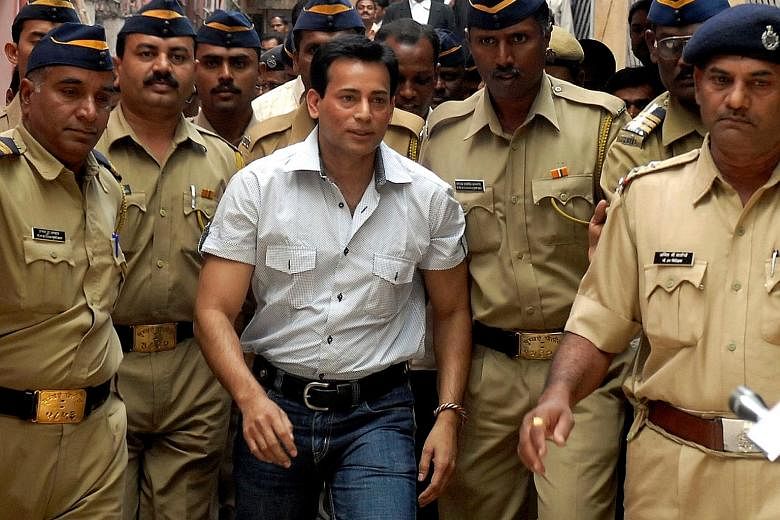MUMBAI • A court yesterday sentenced two men who plotted India's most deadly bombing in 1993 to death, and jailed three others, including the gang's most prominent member, Indian media reported.
The sixth man involved in the series of blasts in the financial capital of Mumbai had died in jail.
The explosions killed 257 people and shook the country.
Investigators had said the bombs were ordered by India's most wanted man, gangster Dawood Ibrahim, to avenge the demolition of the historic Babri mosque in northern India by Hindu hardliners in 1992.
The sentences were delivered by India's special Terrorist and Disruptive Activity (Tada) court.
In 2006, the special anti-terror court convicted 100 people for the blasts. Twelve were given the death penalty and 20 others sentenced to life imprisonment.
Yesterday's sentencing drew a lot of attention as it involved a prominent gangster, Abu Salem.
The Tada court had ruled in June that the six men, including Salem, guilty of involvement in the blasts.
Salem and another attacker, Karimullah Khan, were jailed for life, the Times of India newspaper reported on its website.
Two others, Taher Merchant and Feroze Khan, were sentenced to death on charges of criminal conspiracy, murder and indulging in acts of terrorism that cause death.
Another convict, Riyaz Siddiqui, was sentenced to 10 years in jail after he was found guilty on the lesser charge of abetting and aiding terrorism.
The Hindustan Times said Salem, who went by the name Abu Samaan in Dawood Ibrahim's gang, was arrested in Portugal in 2002 and extradited to India in 2005. He has been in prison since then.
He was not sentenced to death, the Times of India said, because that was the condition set by a Lisbon court before it allowed his extradition from Portugal.

